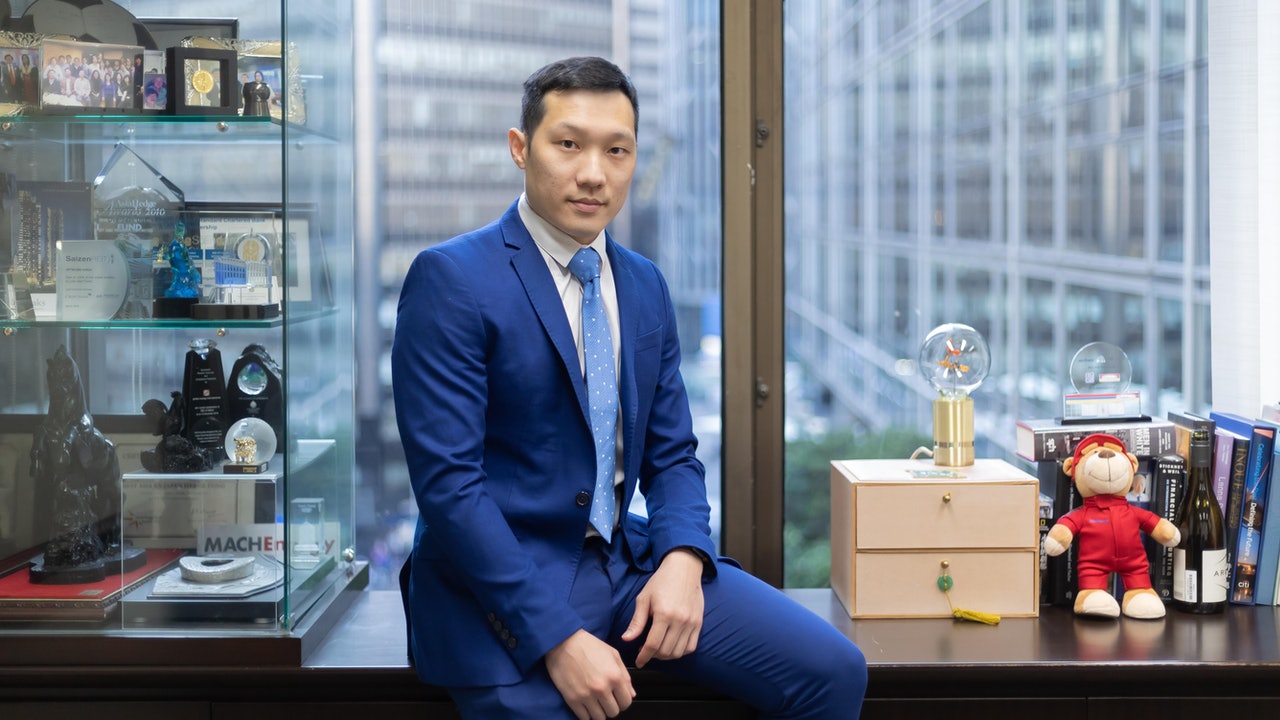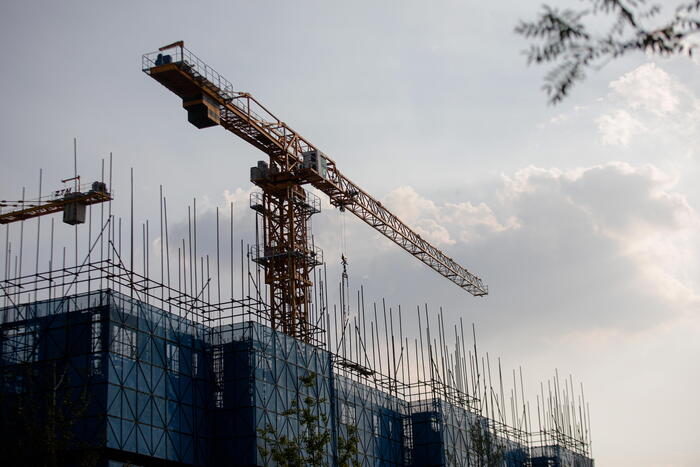In the past two years, the SPAC (special purpose acquisition company) listing system has swept across the United States. Many SPACs have taken the lead in their share prices before the merger. Under the market's unlimited expectations, more and more SPACs have emerged.
Hong Kong also launched the SPAC consultation document in September this year, hoping to catch up with the SPAC express, and the consultation period is until the end of October this year.
For the Hong Kong-style SPAC, the market has reacted to both extremes. Some in the financial industry believe that the Hong Kong version of the SPAC is too restrictive and unattractive.
Hong Kong-based Argyle Street Management Limited (ASM) also caught up with the SPAC Express last year, establishing SPACs in the United States and acquiring potential targets in Southeast Asia.
Huang Kekai, one of the company’s project leaders and ASM executive director, welcomed the launch of SPAC in Hong Kong, "and the family market has more choices. If you don’t do it, you will have one less product and less competitiveness."
Hong Kong also launched the SPAC consultation document in September this year, and the consultation period is until the end of this month.
(Profile picture)
SPAC craze. Among Asia, Singapore has the fastest "response". It was officially listed on SPAC in September this year.
Not to be outdone, Hong Kong launched the SPAC consultation document on September 17, officially opening the door to Hong Kong's SPAC.
Treasury Secretary Xu Zhengyu stated on a radio program on Sunday (17th) that the Hong Kong Stock Exchange (0388) proposed to establish a special purpose acquisition company (SPAC) listing system in order to attract high-quality SPACs to list in Hong Kong.
He emphasized that SPAC will put quality first, so it is not open to retail investors at this stage to protect investors.
Indeed, the SPAC full of Hong Kong characteristics can be described as a “stable word”. For example, only professional investors are allowed to participate in subscription and trading, and promoters need to hold category 6 (advising on institutional financing) and category 9 (providing asset management) License, and there is a minimum IPO fund raising requirement of 1 billion yuan, and even the exercise of the redemption right has its own set (see Table 1).
In contrast, the listing conditions in the United States and Singapore are relatively loose.
Source: SEC, SGX and HKEx documents.
No need for own funds to go public to attract high-growth industries
Since SPAC itself is just a bad-checking company and does not have any actual business, investors are betting on the company's investment team's vision, hoping to find a "treasure."
In order to reduce the risk of retail investors, the Hong Kong Stock Exchange has therefore imposed multiple conditions.
Among them, the minimum fund-raising requirement of 1 billion yuan means that the minimum market value of SPAC in the early stage of listing is as high as 4 billion yuan, which has been controversial in the market.
Because they have the ability to reach this market value, they can already meet the main board listing requirements.
Why would a large-scale company choose SPAC to go public?
ASM executive director Huang Kekai said that even if the threshold of Hong Kong's characteristic SPAC is higher than that of the United States, it still has a certain appeal. Although the ultimate goal of both is to go public, the process is completely different.
The biggest difference between the two is that the IPO is that the company intends to go public and uses its own funds to find a sponsor for a series of listing procedures.
However, SPAC proactively "calls the door", and the sponsors of the SPAC seek funds for the listing process.
"Another difference between SPAC listing and traditional IPO listing is pricing. The pricing of IPO listings is generally confirmed during roadshows based on the market response. However, the listing pricing of SPACs is determined jointly by the SPAC promoters and the target company. In other words, the target company does not have to spend huge sums of money to hire a professional team to do pre-IPO market consulting, these costs are borne by the SPAC sponsors.
Coupled with the certainty of pricing through SPAC listing, it is another incentive for the target company to go public through a merger with SPAC.
Huang Kekai, executive director of ASM, believes that SPAC sponsors take the initiative to "call the door" and the target company does not need to use its own funds, which is a big selling point.
(Photo by Yu Junliang)
In favor of the merger, the right of redemption cannot be exercised.
However, in this consultation document, the authorities have suggested that only shareholders who oppose the merger have the right of redemption, which means that shareholders who are in favor of the transaction cannot exercise the right of redemption.
Since 2015 in the United States, the right of redemption can be exercised regardless of whether it is for or against it; the SGX's final plan also follows the U.S. approach.
Huang Kekai believes that this proposal is the most "failing". "If shareholders feel that the valuation is reasonable, but they don't like the company or industry, they will approve the merger but exercise the redemption rights. For example, the promoters I found a mining company with potential, but shareholders may have to take into account ESG, and shareholders will redeem it.” The market sentiment at the time of shareholder voting also directly affects the voting results. It must not be purely a valuation issue.
There is no problem with your merged company, but shareholders may feel that the market has other better options?
"
He admits that the proposal is very unfavorable for SPAC sponsors, because SPAC life cycle of only two years, "press with finger target
, pour valuation, due diligence to do, wait for the target company to complete the audit of compliance with listing requirements, etc., have to spend several Zo In a month, Zhong wants to procure PIPE (Private Investment in Public Equity) investors, and then submit it to the Stock Exchange for approval, organize a general meeting of shareholders, etc. When it comes to voting, a SPAC may have to return for several months. The initial cost of the SPAC sponsor Oh, but it’s because of the uncertainty of the merger that the shareholders agree to the merger. Many people are opposed to the redemption. Basically, after the game is over, the money will be lost for nothing. The other conditions of the Stock Exchange are reasonable, but this item is a bit too strict.
Huang Kekai believes that the US capital market is deep enough and the target company can enjoy a higher valuation, so it is the most attractive.
(Profile picture)
Singapore targets Southeast Asia, mainly Hong Kong and specializes in the mainland market
Looking at the listing requirements of the three places, the NYSE and NASDAQ only require at least US$50 million and US$100 million to raise funds (approximately 388 million and 776 million Hong Kong dollars).
SGX requires 150 million Singapore dollars (equivalent to 864 million Hong Kong dollars).
The market value of the company required by the United States and Singapore is lower than that of the Hong Kong SPAC. Will the target company choose to list in Hong Kong?
In contrast, Huang Kekai believes that the U.S. is still the most attractive place for listing. "The U.S. capital market has always been deep enough and the valuation is high, so the U.S. must be the target company's first choice." As for Singapore and Hong Kong, They have their own positioning.
"Singapore is not in direct competition with Hong Kong. Southeast Asian companies tend to list in Singapore." He gave examples such as OUE Lippo Health Care under Indonesian company Lippo and Sinar Mas Group, another Indonesian conglomerate. Golden Energy and Resources and Sinar Mas Land Ltd are also listed in Singapore.
One of Southeast Asia's largest brewers, "Thai Brewery", is Singapore's largest IPO this year.
In contrast, there are very few Southeast Asian companies listed in Hong Kong, but they are favored by mainland companies. It is expected that the fate of SPACs in the two places is similar to that of IPOs.
However, although the target company has a certain demand for listing in Hong Kong in the form of SPAC, Huang Kekai believes that the development will not be as fast as the United States in the short term. "The United States has had SPACs for many years, and many funds have invested in SPACs. I am an advisor and banker of SPAC, but there are many people in Hong Kong who do it."
The proliferation of SPACs in the United States has fallen short of the listing price. Experts: Too many people know how to do good and bad. Xu Zhengyu: Strengthen the regulation of the scale of SPAC fundraising and increase the sustainability of supervision. Regulatory efforts intend to tighten its accounting standards


/cloudfront-eu-central-1.images.arcpublishing.com/prisa/3I74UEXLYRBBRPGPSGWNN6WXH4.jpg)




